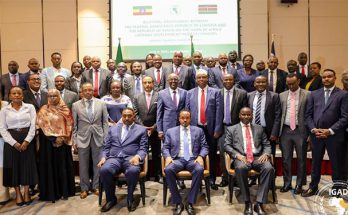
What is chemical engineering all about?
In broad terms, chemical engineering is one of the branches of engineering which involve in converting raw materials into valuable products in most efficient, economical and environmental friendly way. As chemical engineers we focus on the designing of process. That means how to change raw materials into valuable products. We also deal with the inputs (material and energy) that are required for production. We apply chemistry, biology, physics, and mathematics to solve problems that involve the production or use of chemicals, fuel, drugs, food, plastics etc. on a large/industrial scale. We use our knowledge in selecting optimal production methods and plant equipment to minimize costs and maximize safety and profitability.
In short, we got engaged in designing of process required for producing a particular product, minimizing the cost of its production in environmental friendly way which involves waste management.
What contributions did you make as a chemical engineer to this point?
We studied the feasibility of converting tantalum ore which is normally exported without being processed at the present time. I involved in that study as a leader of the technology team with the intention of adding value to the ore. The objective of the study was to erect a hydrometallurgical plant for producing tantalum value-added products. The tantalite concentrate obtained from Kenticha Mine contains radioactive substances such as Uranium and Thorium with an amount higher than the acceptable level, which makes it to be classified as dangerous goods (Class 7) in transportation.
This requires special handling which increase the cost of transportation and reduces the selling price, as some countries don’t allow tantalite that contains radioactive substances higher than the acceptable level. If we actually process the tantalum ore instead of exporting the raw, we can increase the income generated by three – four folds in addition to addressing the above problems. I remember in one year Ethiopia exported tantalum ore close to 200 tons and we got around 20 million dollars from the tantalum ore. But if it had been processed or value added, we would get close to 80 million USD. In other words, we can considerably increase the foreign currency that would be obtained by exporting the raw tantalum ore. Another major study in which involved as leader is development of a 10 years strategy for Construction Inputs Materials (Ceramics, Marble, Gypsum, Glass, plastic, aluminium, adhesive and wood products), for Ministry of Industry. As we know, the country is endowed with the raw material necessary to establish such industries and the study focused on development of strategy in a way to drive them towards competitiveness both at national and international level.
Another interesting project related to environment was the study on Used Motor oil recycling. In our country, used motor oil contamination had been a considerable environmental problem that requires to be tackled, considering the impact it has on water bodies, on soil and overall in the general environment. It takes only one litre of oil to contaminate one million litres of water. In our study, we recommend simple technology which utilizes cheaper chemicals, utilities and equipment to produce comparable base oils, which have a potential to be used as a raw material for lubricant production or as a fuel/energy for industries without harming the environment.
Together with my colleagues I am also involved in consulting the Ethiopian Sugar Corporation targeting at effective utilization of sugar industry by-products for making the Ethiopian Sugar Industry internationally competitive. We are currently developing a road map for ten years.
How do you evaluate the status of sugar factories in Ethiopia?
Ethiopia is developing several sugar factories in almost every part of the country. To the best of my knowledge, six are currently producing/started production and close to ten new sugar factories are under construction. At the moment, we are only producing sugar and started exporting molasses. However, in order to make the sugar factories internationally competitive, the products obtained from the industry should be diversified from time to time. They should not continue by only producing the white sugar/crystal all the time. They should be able to produce other products that can be obtained from the industry’s by-products. For instance, when you produce sugar from sugar-cane, there are numerous by-products that can be obtained such as molasses and bagasse, among others. At the moment, we are only using molasses for ethanol production and bagasse for energy but we can produce many valuable products such as paper, particleboard furfural from bagasse and bakery yeast, citric acid and lactic acid from molasses.
If you look at all juices, they make use of the citric acid as it has a flavouring and preservative property. For example, if you want to expand the juice factories, production of citric acid locally will be very important. Hence, by producing such valuable products, the sugar industries can be more competitive internationally and support the establishment of other important industries in the country.
Tell me about the used oil recycling.
Last year, we did a consultancy and research work for Total Ethiopia. It is crystal clear that every car after running may be for 5000 kms, they should change their motor oil. But in our country, when they change oil, they just damp the used one in rivers. The used oil consists of contaminated heavy metals such as arsenic lead which can cause significant health problems. However, the used motor oil can be used for other applications and thus we come up with the technology. For instance, we came up with a solution that can remove toxic metals from the used oil in view of the fact the used oil can be effectively utilized as a fuel for industries such as cement and for other industries. In other countries, they make use of the used oil as a raw material for producing the virgin oil by only adding certain ingredients.
We can create a number of job opportunities by establishing small and medium enterprises which will involve in collecting the used oil from gas stations, process it with simple technology and put on the market as a fuel for cement and other industries. In this way, we can create a number of job opportunities in our country for the most part our graduates can effectively work in this area and address the environmental problem I mentioned above.
How do you evaluate the status of Ethiopian minerals?
I have the courage to say, the utilization of our own resources especially in the mineral resources is still at its infant stage. But we should be able to expand the industry with a focus on value addition to them targeting at harvesting the maximum benefit. That means, if you want to maximize the income that would be obtained from the resources, we have to process and add value to them. It is not advisable to export tantalum, opal and other minerals without actually adding value. Opal is used for making jewellery whereas tantalum is used for electronic industries as a capacitor.
If we add value to these minerals for example the income that will be obtained will increases considerably. In Ethiopia, we export opal and tantalum ore without adding value. Hence, we are not getting the maximum benefit. Processing the minerals in our country will also give us an opportunity to expand other industries. As I tried to mention earlier, if you process the tanatlite ore, the income we obtain would be three or four times greater than the current income obtained by exporting the raw tantalite. In addition we are losing other minerals along with tantalum which are counted as a waste such as titanium, uranium, iron when we export raw tantalite.
How many types of minerals do we export at this point?
As far as I know, in terms of export, gold is the most important element in Ethiopia, next to gold is tantalum and opal. Furthermore, there are other industrial minerals which are used for industries. While we are on the subject, there is actually a huge reserve of potash around Afar State. The exploration is currently under way. But it is not still mined. As far as I remember, there is close to 150 million tones of potash. If it is possible to mine this potash, we can make the most out of it as an input for NPK fertilizer production. We are now erecting a Urea fertilizer plant from Coal in YaYu which is under construction by METC. This could save a huge foreign currency that is used for importing fertilizers.
How do you assess the Ethiopian sugar industries development?
The government is currently planning to open close to 10 new sugar factories. It is expected that the sugar factories will be completed in the next five years. Moreover, there is a plan to export sugar. Currently, we are producing around 400-600 thousands quintals of sugar. But when the sugar factories under construction are completed, the capacity of Ethiopia producing sugar will be close to 4.5 million quintals. It is almost around 10 times than the current production. Hence, Ethiopia will join the top ten sugar producing countries in the world. This will give us an opportunity to export in addition to satisfying the local demand. Ethiopia produced close to 25 million litres of ethanol last year using molasses, the by-product from the sugar industries. If we are able to utilize on by-products obtained from the ten sugar factories under construction, there is an opportunity to produce close to 500 million litres of ethanol from the sugar industry. Actually, 500 million litres of ethanol will satisfy the demand for the blending of the fuel apart from producing other valuable products from it. We can produce for example different plastic products such as PVC which can be used for construction.
What should be done to take the mining industry to a new height of success?
As far as I am concerned, the government should encourage companies to process ore in Ethiopia with the intention of adding value to the minerals by cutting down tax or other supports/incentives. In this way, we can increase the foreign currency that can be obtained from our mineral resources and creates a number of job opportunities. From my point of view, we should stop exporting raw ores unless we add value to the minerals. Moreover, we should learn from the experience of other countries on the subject of mineral utilization. As we are at early stages of industrialization and economic transformation, we are in a better position to foresee a sustainable mineral industry development. Hence, we should sit down and formulate a kind of road map for these industries. Otherwise, the benefit that we obtain from our mineral resources will not be very much attractive as experienced in other African countries.
Tell me a little about the School of Chemical and Bio Engineering that you lead at this point in time?
Chemical engineering started in Ethiopia in 1981. At that point in time, the first chemical engineering course was given in mechanical engineering department as a minor programme. But the full fledged chemical engineering is launched in 1986. We focused on the B.Sc. programme from 1986-2002. After that, we launched MSc programme in Process Engineering in 2002 and environmental and food engineering programmes in 2005. We also started offering Ph.D. programmes in three streams: environmental, food and process engineering in 2010. The chemical and bioengineering was a department until 2012. But later it grew to school the now School of Chemical and Bio-engineering.
Currently, we do have around 700 undergraduate, 200 MSc and 50 Ph.D. students in five streams. The first one is the normal chemical engineering which is commonly called process engineering. The other ones are food engineering, environmental engineering, biochemical engineering and leather technology.
Would you enlighten us about Ethiopian Society of Chemical Engineers?
Ethiopian Society of Chemical Engineers is founded in 1995. Currently, it has close to 2000 active members. Some of them are Diaspora and some of them are local members. Among them, close to 30 are Ph.D. holders and about 150 are MSc holders and the rest are B.Sc. holders. The society is more engaged in research and advising a number of industries at the time when they come across problems by conducting researches. The other one is promoting chemical engineering profession for high school students. We explain in black and white what chemical engineering means and what chemical engineers are so that they can decide their future career. We also engaged in publications in addition to organizing different workshops, training, and seminars on specific agenda that we believe is important for the development of the chemical industry in Ethiopia
Is there anything you would like to add as a final point?
I have the guts to say the contribution of chemical engineers in this country is very huge. Ethiopia is currently transforming its economy from the agrarian to the industrialized one. This being the case, the future for the chemical engineers is so bright in view of the fact that chemical engineers involve in producing valuable products from raw materials for they know the inside out of how to diversify our agricultural products or other natural resources and add values to them. Taken as a whole, I would like to say that we, the professionals, and the government should work closely with a view to making the country develop a sustainable manufacturing industry and take the country to a new chapter of success.



